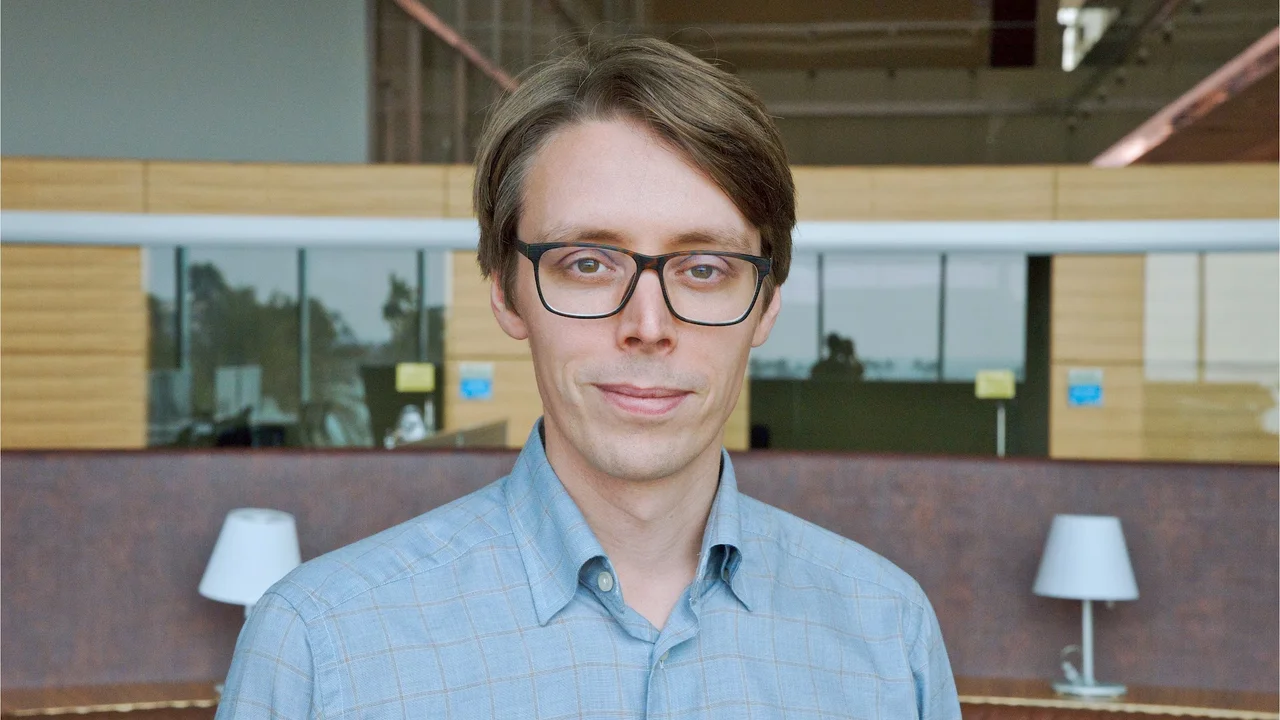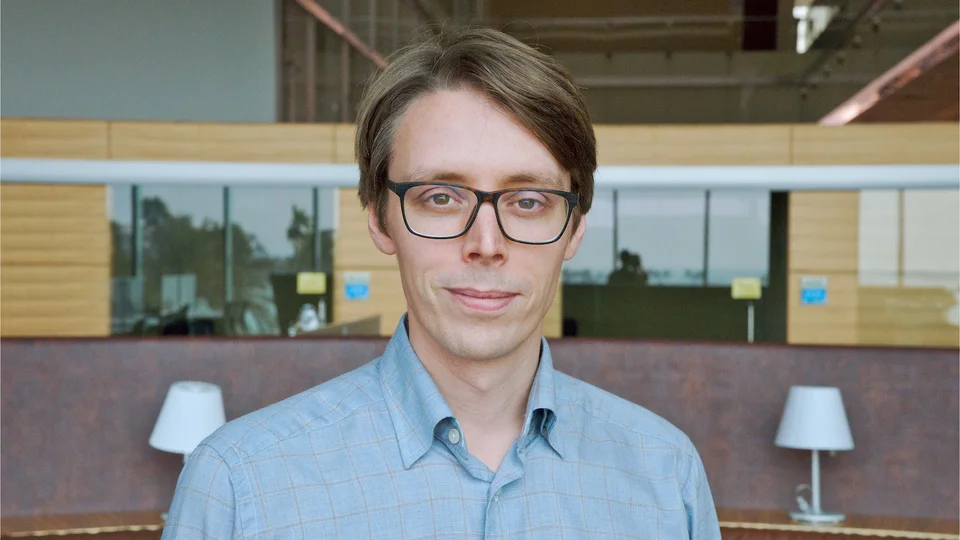
CEMSE New Faculty: David Bolin, Associate Professor of Mathematical Statistics
David Bolin is an associate professor of mathematical statistics who joined the KAUST Computer, Electrical and Mathematical Science and Engineering (CEMSE) Division earlier this month from the Department of Mathematical Sciences at the University of Gothenburg. Before joining KAUST, Bolin received both his Ph.D. degree in mathematical statistics and M.S.c in engineering mathematics from Lund University, Sweden, in 2012 and 2007, respectively. Upon completing his Ph.D., he spent one year at Umeå University, Sweden, working as a postdoctoral fellow before moving to the Chalmers University of Technology. In 2016, Bolin became an associate professor of mathematics at the University of Gothenburg, where a year later he received the title of Docent in mathematical statistics.
About
By David Murphy
David Bolin is an associate professor of mathematical statistics who joined the KAUST Computer, Electrical and Mathematical Science and Engineering (CEMSE) Division earlier this month from the Department of Mathematical Sciences at the University of Gothenburg.
Before joining KAUST, Bolin received both his Ph.D. degree in mathematical statistics and M.S.c in engineering mathematics from Lund University, Sweden, in 2012 and 2007, respectively. Upon completing his Ph.D., he spent one year at Umeå University, Sweden, working as a postdoctoral fellow before moving to the Chalmers University of Technology. In 2016, Bolin became an associate professor of mathematics at the University of Gothenburg, where a year later he received the title of Docent in mathematical statistics.
Outside of his day-to-day research at KAUST, the Swedish researcher will also begin creating a new research group within the CEMSE Division. It was this chance to create a research group combined with a desire to harness the quality research and collaborative environment found on campus that convinced Bolin to join KAUST.
“My main reason for joining KAUST was the great opportunity to build and maintain a research group in an exceptional research environment. I was also attracted [to KAUST] by the quality of the research that is being done [here] in areas close to mine. Therefore, my goal is to build a strong research group which can more rapidly advance the work in my primary research projects while building new collaborations both within the University and abroad.
“[At KAUST,] it is definitely more stimulating to come to work when you are surrounded by so many people that are enthusiastic about research.”
Bolin’s primary research areas are spatial statistics, spatio-temporal modeling, and computationally efficient inference methods for analysis of large data sets. His research interests include Gaussian Markov random fields, stochastic partial differential equations, spatio-temporal modeling, and image analysis.
“My main research interests are in stochastic partial differential equations and their applications in statistics, with a focus on the development of practical, computationally efficient tools for modeling non-stationary and non-Gaussian processes. I also work on uncertainty quantification and visualization for applications in spatial statistics and medical imaging.
“Something I enjoy about doing research in statistics is that one can benefit from working with researchers in different fields. I am currently involved in a number of applied projects in areas ranging from porous materials and brain imaging to ocean wave modeling and fatigue damage analysis.”
Growing up as an individual who was always interested in mathematics—without giving much thought to what direction of study to pursue—Bolin has a simple piece of advice to his younger self: “I would tell a younger version of myself to consider statistics as a great topic to study!”
“[I] started studying mathematics at university without really having any thoughts about what I would be working with. During my master’s studies, I had the opportunity to work on a summer research project at Caltech, where I realized that what I was doing could probably be done better if I knew more about stochastic processes and statistics. So back in Sweden, I changed my focus of studies to statistics and found it so interesting that since then, I have not considered any other options than doing research in this field.
“If you find a topic that you are truly passionate about, it makes it so much easier to put in the work needed for good research.”
